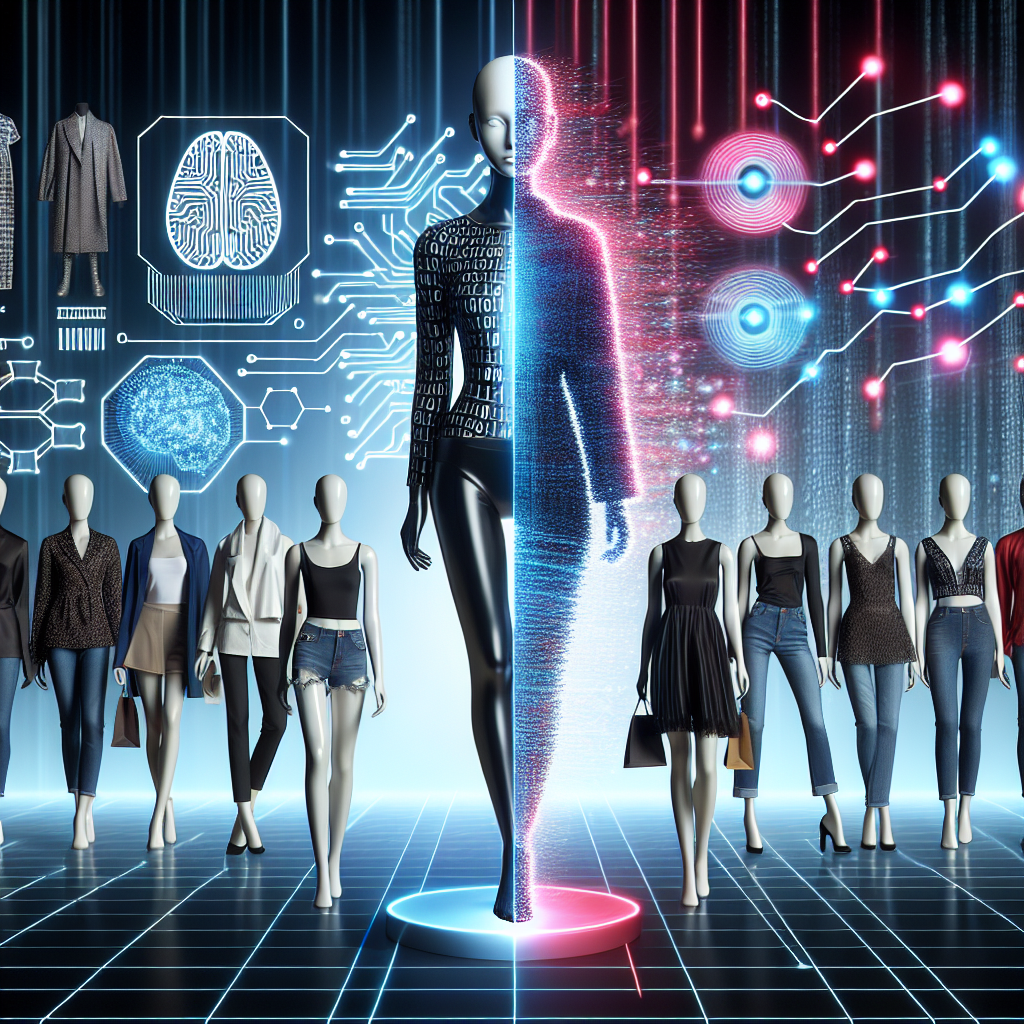Artificial Intelligence (AI) has been revolutionizing various industries, including fashion. From personalized shopping recommendations to virtual fitting rooms, AI is reshaping the way consumers interact with fashion brands and make purchasing decisions. In this article, we will explore the influence of AI on fashion consumer preferences and how it is changing the landscape of the fashion industry.
AI in Fashion Retail
One of the key areas where AI is making a significant impact in the fashion industry is in retail. AI algorithms are being used to analyze consumer data, such as browsing history, purchase behavior, and social media interactions, to create personalized recommendations for shoppers. By leveraging machine learning techniques, fashion retailers can offer tailored product suggestions that cater to the individual preferences of each customer.
In addition to personalized recommendations, AI is also being used to improve the overall shopping experience for consumers. Virtual fitting rooms, for example, allow shoppers to try on clothing virtually using their smartphones or computers. This technology uses AI-powered algorithms to analyze the user’s body measurements and recommend the best size and fit for a particular garment. This not only helps consumers make more informed purchasing decisions but also reduces the number of returns and exchanges, ultimately improving customer satisfaction.
Furthermore, AI is being used to enhance customer service in the fashion industry. Chatbots powered by AI can assist shoppers with product recommendations, answer questions about sizing and availability, and provide real-time customer support. This 24/7 availability of customer service helps brands build a stronger relationship with their consumers and improve overall customer satisfaction.
Impact on Consumer Preferences
The influence of AI on fashion consumer preferences is evident in the way shoppers interact with brands and make purchasing decisions. With the rise of e-commerce and online shopping, consumers have access to a vast array of options at their fingertips. AI technology is helping consumers navigate this overwhelming choice by providing personalized recommendations and tailored shopping experiences.
Consumers today are looking for convenience, personalization, and authenticity when it comes to their fashion choices. AI-powered tools such as virtual styling assistants and personalized recommendations are helping consumers find the right products that fit their style and preferences. This personalized shopping experience not only saves consumers time and effort but also enhances their overall satisfaction with the brand.
Moreover, AI is enabling fashion brands to better understand their customers and anticipate their needs. By analyzing consumer data and behavior, brands can identify trends, preferences, and shopping patterns, allowing them to tailor their products and marketing strategies accordingly. This data-driven approach to customer engagement helps brands stay relevant and competitive in an increasingly crowded market.
FAQs
Q: Will AI replace human designers in the fashion industry?
A: While AI technology is transforming various aspects of the fashion industry, it is unlikely to completely replace human designers. AI can assist designers in the creative process by providing data-driven insights and inspiration, but ultimately, the human touch and creativity are irreplaceable.
Q: Is AI ethical in the fashion industry?
A: Ethical considerations are important when implementing AI technology in the fashion industry. Brands should ensure that AI algorithms are transparent, fair, and unbiased in their decision-making processes. Additionally, brands should prioritize data privacy and security to protect consumer information.
Q: How can consumers benefit from AI in fashion?
A: Consumers can benefit from AI technology in fashion in several ways, including personalized recommendations, virtual fitting rooms, and improved customer service. AI helps consumers make more informed purchasing decisions, saves time and effort, and enhances their overall shopping experience.
In conclusion, the influence of AI on fashion consumer preferences is undeniable. From personalized recommendations to virtual fitting rooms, AI is reshaping the way consumers interact with fashion brands and make purchasing decisions. By leveraging AI technology, fashion brands can offer personalized shopping experiences, improve customer service, and stay ahead of the competition in an increasingly digital world. As AI continues to evolve and become more integrated into the fashion industry, consumers can expect a more personalized, convenient, and engaging shopping experience.

